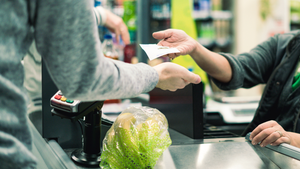Breakfast bakery took pandemic-related hits, now seeing rebound
Supermarkets are dealing with inflation, packaging issues, and effects of the pandemic
October 31, 2022

TOP TAKEAWAYS
The breakfast segment in the bakery department started to rebound in early 2022, but still the category is down approximately 4%
Tastings have gone by the wayside for some grocers since the pandemic, which also hurts sales
Individually packed items help with safety perception, but 72% of consumers are also concerned about plastic and other package waste
Breakfast may be the most important meal of the day in some circles, but for grocery, it’s been a challenging two years of trying to entice shoppers to come in and buy fresh baked breakfast items in their stores.
The breakfast segment in the bakery department started to rebound in early 2022, with more stores seeing a return of customer interest in items like bagels, donuts, and muffins. However, higher prices due to rising costs are hurting some stores—especially with specialty items.
In addition, changes made during the pandemic remain. Stores find themselves balancing packaging and display ideas (that came to fruition during the pandemic) with what customers were used to previously.
Liz Aquino, director of bakery at Sprouts Farmers Markets, a Phoenix-based specialty grocer with more than 380 stores in 23 states, noted that one strength of the breakfast is consumer mentality around the category. Breakfast, she said, is still seen by consumers as a treat and an indulgence.
“Year to date we have seen better-than-projected results driven by seasonality and new alternative options,” she said. “Core muffin and pastry varieties continue to be popular with our consumers as they look forward to the changing seasonal selections and new flavor profiles. Consumers continue to look for alternative better-for-you options where they can still indulge however feel better about doing so.”
Scott Fox, vice president of bakery operations for Dorothy Lane Market, a gourmet chain based out of Dayton, Ohio, noted in 2022, the breakfast pastry category is down approximately 4% with croissants and muffins losing some steam.
In his opinion, it’s not pandemic related, but more the result of inflation.
“More than anything, I’m seeing that it’s the price increases that we’ve had to make to try and keep some of our margins that are the main factor,” he said. “Our costs have increased so much, we had to raise our prices, and people are starting to think more about those decisions.”
For instance, at Dorothy Lane Market, a premium Danish is almost $4.
“And we’re not going to skimp—we use clean ingredients and give the best we can—but that causes the price to go up, and people are thinking hard about whether they want to spend that much,” Fox said. “We’re seeing the same thing in the bakery department with bread. Flour costs have gone from $16 to $26 a bag and we are forced to raise prices.”
Another factor playing into decreased sales is a trend towards working from home—which translates to less people making a stop at the store on the way to work to pick up fresh bakery items.
In fact, a recent International Dairy Deli Bakery Association report noted that work from home continues to remain elevated versus pre-pandemic times, and that has the greatest impact on breakfast and lunch sales—especially when it comes to grab-and-go items like donuts, bagels, and muffins.
Marketing matters
Dorothy Lane Market hasn’t done a great deal of marketing for its breakfast bakery items this past year outside of some social media mentions, highlighting the fact that the store changed up its Danish and croissant program to make it more European.
“We’ve added fresh fruit to a lot of the Danish,” said Fox, who added that they’ve also stopped putting icing on the Danish and are now just using a glaze. “It’s a new breakfast set for us. We also introduced a savory scone and we’re looking at bringing in plant-based croissants and Danishes in the next year.”
At Sprouts, the store ties its marketing campaign for breakfast bakery items by focusing into seasonal and fun social media holidays like “National Muffin Day,” utilizing the “fresh baked in house daily” phrase to hang its hat.
�“Fresh baked, differentiation and ideation are key in this segment in order to surprise and delight consumers,” Aquino said. “We partner with our manufactures closely during ideation to create the next best flavor profile.”
Pandemic impact
Unfortunately, since the pandemic, tastings have gone by the wayside at Dorothy Lane, and Fox noted they still haven’t returned. For plant-based items, this means completely holding off on ordering until the chain is better able to gauge interest.
Dorothy Lane Market also used to offer self-serve bagel and muffin cases pre-pandemic, but that’s since changed to living behind the service case—and it’s not going to go back anytime soon.
At the time, the pandemic hurt Sprouts significantly in the bakery segment, as the company was forced to alter the way it went to business with its self-serve fixtures.
But now, since fully reopening, the trajectory has changed to better than pre-pandemic results and continues to grow.
“During the pandemic, bakery items were individually wrapped and as restrictions eased, we opened cases back up to sell items in display cases,” Aquino said. “Regarding the merchandising, nothing continues today as it was during the pandemic. Our team is committed to ensuring our customers are provided with great quality and selection.”
Many supermarkets also replaced self-serve breakfast items with packaged grab and go items.
But it’s important that stores understand consumer perception around sustainability when it comes to those items.
According to the International Dairy Deli Bakery Association (IDDBA) nonprofit, 72% of consumers are concerned about plastic and other package waste, and 60% of shoppers say they would be more likely to buy a brand or shop at a grocery store focused on limiting food and package waste. So, offering packaged single muffins, Danishes, or bagels could be frowned upon and hurt sales.
“It’s definitely something we consider, and we look for packaging solutions that our customers are happy with,” Fox said, “Anything to help the category at a time when people are a little more reluctant to grab breakfast.”
About the Author
You May Also Like






